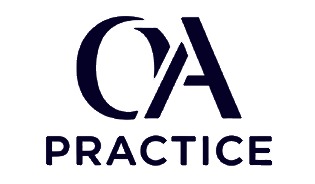D444 Adult Health I - Set 2 - Part 1
Test your knowledge of technical writing concepts with these practice questions. Each question includes detailed explanations to help you understand the correct answers.
Question 1: A patient with pneumonia develops confusion and restlessness despite receiving antibiotics for two days. Which complication should the nurse suspect based on these mental status changes?
Question 2: Your patient has open-angle glaucoma with gradually worsening peripheral vision loss. Which medication class represents first-line treatment for managing this chronic condition?
Question 3: A nurse caring for a tuberculosis patient must collect sputum specimens. What is the optimal timing for obtaining these samples for accurate diagnosis?
Question 4: Which clinical manifestation distinguishes chronic bronchitis from emphysema in a patient with COPD presenting to your unit?
Question 5: A patient taking rifampin for tuberculosis should use non-hormonal birth control. This recommendation is necessary because rifampin causes which effect?
Question 6: Your patient with liver cirrhosis has an ammonia level of ninety. Which expected finding confirms the development of hepatic encephalopathy?
Question 7: A patient with asthma experiences severe attack with absent breath sounds. After emergency treatment, which finding indicates the most dangerous complication?
Question 8: Which dietary teaching is most important for preventing exacerbations in a patient newly diagnosed with Crohn's disease?
Question 9: A patient presents with right upper quadrant pain and clay-colored stools. These findings suggest obstruction of which structure requiring intervention?
Question 10: Your patient with myasthenia gravis has difficulty keeping eyes open. Which intervention helps prevent corneal damage during sleep?
Question 11: A patient with HIV infection has a CD4 count of four hundred fifty. Which statement best describes this patient's current immune status?
Question 12: Which medication used for tuberculosis treatment requires the patient to have baseline and routine eye examinations during therapy?
Question 13: A patient with GERD asks about beverage choices. Which drink should be avoided to prevent triggering reflux episodes?
Question 14: Your patient with emphysema maintains oxygen saturation at ninety percent. Why is this acceptable rather than aiming for normal saturation levels?
Question 15: A patient receiving lactulose for hepatic encephalopathy should have how many bowel movements daily to effectively reduce ammonia levels?
Question 16: Which finding in a patient with multiple sclerosis indicates an exacerbation requiring immediate corticosteroid therapy?
Question 17: A patient with psoriasis develops severely inflamed skin shedding in large sheets. This presentation indicates which type requiring emergency treatment?
Question 18: Your patient needs contact precautions for MRSA infection. Which personal protective equipment must be worn for all patient interactions?
Question 19: A patient with cataracts is scheduled for surgery. Which preoperative teaching about postoperative restrictions is most important?
Question 20: Which laboratory value requires immediate intervention in a patient receiving heparin therapy for deep vein thrombosis?
Need Guaranteed Results?
Our exam support service guarantees you'll pass your OA on the first attempt. Pay only after you pass!
Get Exam Support